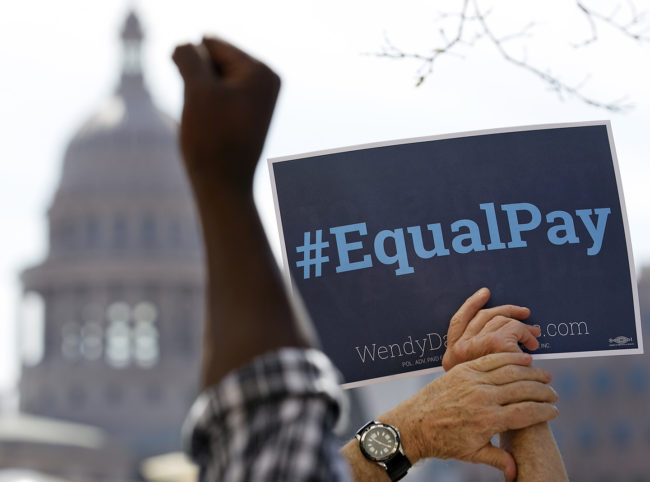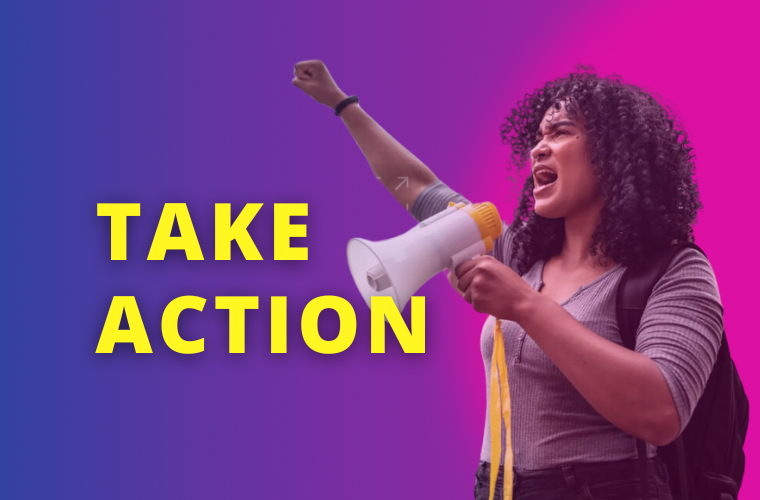

Fair and Equal Pay for Latina Women is How We Recover from the Pandemic

By Noreen Farrell, Executive Director
"Latina workers are the backbone of our economy, and they will be critical to its recovery."
Video: Hear more from Noreen about Latina Equal Pay Day.
October 29 is Latina Equal Pay Day this year. It isn’t a day to celebrate. It’s a day to recognize the contributions of Latina women to the American economy, and to come together in the fight for fair wages for Latina workers. According to an Institute of Women’s Policy Research report released last week, the average Latina mom would have to work until she was over 100 years old to earn what the average white man will earn by age 60. Based on the current rate of progress, it will be the year 2220 before equal pay for Latina women is achieved.
This is unacceptable.
The COVID-19 pandemic has emphasized what we always knew to be true — that Latina workers are the backbone of our economy, and they will be critical to its recovery. As we reimagine the American workplace emerging from the pandemic, closing the wage gap experienced by Latina workers is not negotiable. To change course, we must support the policies that shore up wages for Latina women. Now is the moment to demand equal pay for equal work, employer pay data reporting so we can track pay disparities, an end to poverty wages, and contributors to job and wage insecurity like sexual harassment and a lack of paid leave.
The COVID-19 pandemic has emphasized what we always knew to be true — that Latina workers are the backbone of our economy, and they will be critical to its recovery.
Latina women deserve equal pay for equal work. Although many states have laws requiring employers to pay people equally regardless of gender or race, few have expanded upon or updated those laws, leaving many Latina workers without these basic pay protections. (Learn more about state equal pay laws on Equal Rights Advocates’ interactive Policy Hub.) Stronger equal pay laws must accompany policies that require employers to report to government agencies pay data by sex, race, and ethnicity, because we cannot address discrimination we cannot see. With pay data reporting at the federal level frozen during the Trump Administration, states are taking action. In 2020, for example, California passed a bill requiring pay data reporting of employers in its state.
To close the Latina pay gap, we must also address poverty wages. In all but one state, the average median wage of a working Latina would leave a family with one adult and two children “near poverty,” according to IWPR. In 2021, support state and federal reform to increase the minimum wage (set at $7.25 per hour at the federal level and in many states) and abolishing the subminimum wage in tipped industries (set at $2.13 at the federal level and in many states.) Now before the U.S. Senate, the Raise the Wage Act would gradually increase the federal minimum wage from $7.25 per hour to $15 per hour by 2025, giving an estimated 29% of Latinas a wage boost.
Too often, working women are forced to choose between their job and their family responsibilities. For Latinas, this pressure has only deepened during the COVID-19 pandemic.
Last year, bills to get rid of the tipped wage were introduced in more than a dozen states, but while many legislatures raised their minimum wages, they left the tipped wage intact. We must increase pressure in 2021 for one fair wage, as we also support policy reform ending the wage theft of Latina workers. California considered a bill in 2020 to address this unlawful practice in the garment industry dominated by Latina workers, but the legislature did not pass it. Senate Bill 1399 would have required employers to pay an hourly wage and only allow piece-rate compensation as an incentive bonus, unless provided for in a collective bargaining agreement.
To grow the overall earnings of Latina workers, we must also boost their job security. This requires stronger laws addressing the sexual harassment of Latina workers that often forces them from the workplace or impedes their progress into higher paid positions. Women in workplaces not addressing sexual harassment are also less likely to feel empowered to to negotiate better wages. Nineteen states considered stronger anti-harassment laws in 2020 as federal legislation floundered. The state momentum bodes well for the federal push in 2021. Let’s also demand paid leave for Latina workers.
Women in workplaces not addressing sexual harassment are also less likely to feel empowered to to negotiate better wages.
Too often, working women are forced to choose between their job and their family responsibilities. For Latinas, this pressure has only deepened during the COVID-19 pandemic. Latina working women are the least likely to have access to paid time off or health insurance, which is compounded by the fact that they are overrepresented in the industries hit hardest: leisure, retail and hospitality. Recently released data has shown emergency access to paid sick leave has helped flatten the curve here in the U.S. Making that access permanent and widely accessible to Latina women is an economic and public health necessity.
On this Latina Equal Pay Day, let’s demand the wage and policy reform needed to ensure that Latina workers and their families emerge from this pandemic more economically secure than they entered it.
To learn more about Latina Equal Pay Day, check out the #LatinaEqualPay hashtag on Twitter, where hundreds of organizations are sharing information and resources on Oct. 29.
Noreen Farrell is Executive Director of Equal Rights Advocates and Chair of the national Equal Pay Today campaign.
Stay Connected & Take Action
- Get the Latest News & Information Sign up for Email Updates
- Sign Up for Action Alerts Join the Action Team
- Follow Us


